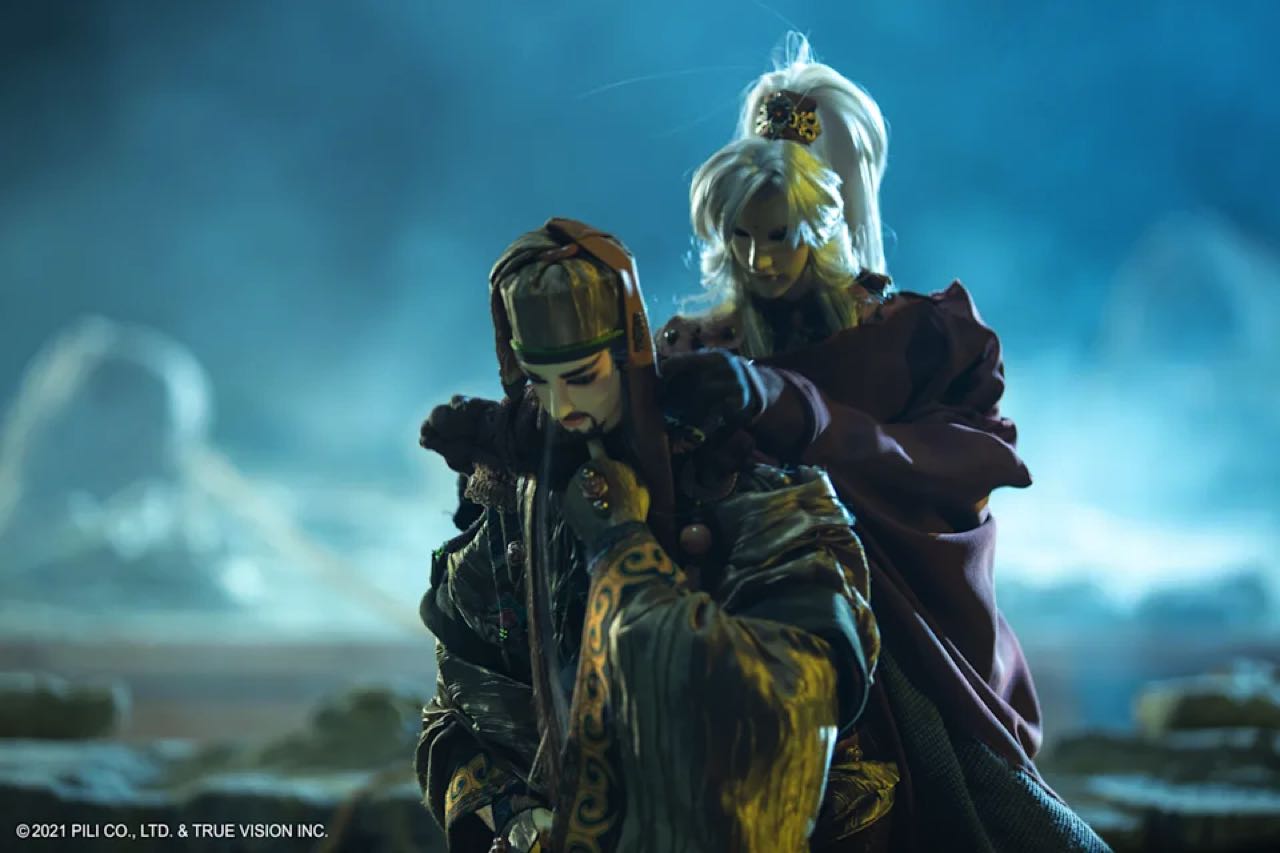by Brian Hioe
語言:
English
Photo courtesy of Pili and True Vision
This is a No Man is an Island film review written in collaboration with Cinema Escapist as part of coverage of the 2022 Neuchâtel International Fantastic Film Festival. Keep an eye out for more!
DEMIGOD: THE LEGEND BEGINS proves a celebration of Su Huan-jen, one of the mainstays of Pili Puppetry. Pili Puppetry is a well-known Taiwanese glove puppet series, which transposes wuxia tales of martial arts chivalry to a fantasy setting. Demigod offers an origin story for Su, a character that has been much-loved in the series for decades. Indeed, the title of the movie in Chinese is simply “Su Huan-jen,” gesturing toward the character’s iconic status.
Su is depicted not only as something of a trickster, but also as young and setting out into the world for the first time. At the start of the story, Su Huan-jen is an inexperienced martial arts disciple. He has highly refined martial arts skills, but his master orders him to keep his skills secret for fear of attracting attention. Otherwise, Su masquerades as a doctor, using the occupation as an excuse to borrow books and fuel his love of reading and learning.

Photo courtesy of Pili and True Vision
However, Su finds himself drawn into worldly affairs, when requested to save the reigning martial arts master of the Five Mountains, the Lord of Globe Castle. Subsequently, Su finds himself framed for the death of the Lord, and having to not only clear his name, but also understand the secrets of the Five Mountains.
Demigod has a fairly standard wuxia plot. Nevertheless, the story is well-told. Despite having a large cast, the film develops its characters sufficiently enough in order to make the pieces of the story fall into place.
If there are any pitfalls to Demigod’s plot, they come from the fact that not all details of the fantasy world setting are sufficiently fleshed out; the plot also relies on several deus ex machinas immediately prior to the conclusion. A training montage is a particularly weak section of the plot, as a strange interlude that awkwardly takes place immediately prior to the climax.
By the end of the film, the stakes of the plot are on the level of the destruction of the world. Though this proves somewhat over-dramatized, though perhaps that is the point—melodrama is a key part of the film’s equation.
Demigod especially shines in displaying the artistry of Taiwanese glove puppetry, and complements the puppetry with an impressive grasp of practical effects and CGI animation. Indeed, the puppetry is so masterful that, if it weren’t for the lack of vocal movements, viewers could forget that they are watching puppets, not humans. The puppets’ motion is impressive not only in fight scenes, but also in regular movements. At times, the puppets even seem to breathe much as humans do. To this extent, the special effects and fight scenes are on par with any Hollywood film.
This all builds upon the fact that Pili Puppetry has received greater international attention in past years due to the TV show Thunderbolt Fantasy. The show was a Japan-Taiwan collaboration scripted by well-known writer Gen Urobuchi, and utilized a whole new set of puppets to reach viewers all across East Asia.

Photo courtesy of Pili and True Vision
Demigod seems to be a similar attempt to bring Pili Puppetry to new audiences, by revisiting popular characters and retelling their stories in a way that appeals to younger demographics. Indeed, as the ending of the film suggests, there may be follow-up movies to Demigod down the line.
Compared to Thunderbolt Fantasy, however, Demigod keeps more of the traditional Taiwanese storytelling narration that is a feature of Pili Puppetry, and harkens back to the origins of such puppetry in temple fairs and live performances. At the same time, some of these traditional elements may be alienating to contemporary viewers, such as the use of male voice actors for female characters, or the general lack of female characters in the story. Similar to Thunderbolt Fantasy, Demigod’s plot feels weaker for over-relying on wuxia tropes instead of reinventing or subverting them.
Demigod aims to appeal to both long-time fans of Pili while attracting new fans. Although this balancing act is not perfect, the film manages this well enough. Demigod is strongly recommended for those looking for an introduction to Pili.



